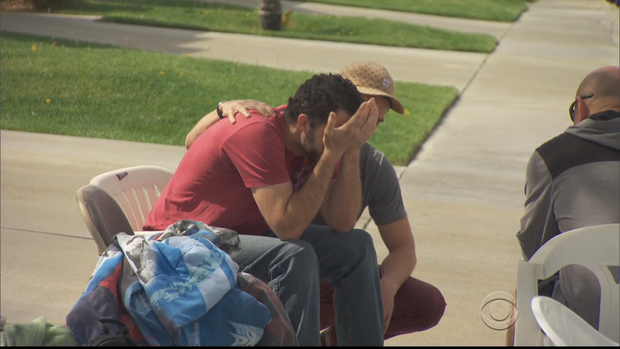Appeal filed in Native American child custody case
LOS ANGELES -- A California family appealed Tuesday to the state's highest court in their fight to keep a six-year-old foster child who was removed from their home after a lower court said her slight Native American heritage requires that she live with relatives in Utah.
The family's lawyer, Lori Alvino McGill, filed the request for the California Supreme Court to hear the appeal. McGill also requested that custody of the child named Lexi be returned to Rusty and Summer Page until the appeal is decided.
The Pages have fought efforts under the federal Indian Child Welfare Act to place Lexi with relatives of her father, who is Native American. The Pages argued that Lexi has lived with them since the age of two and knows no other life.
However, a court found that the Page family had not proven the child would suffer emotional harm by the transfer.
The Pages have three children and want to adopt Lexi, who is 1/64th Choctaw on her birth father's side.
Lexi was 17 months old when she was removed from the custody of her birth parents. Her mother had substance abuse problems, and her father had a criminal history, according to court records.
The child cried and clutched a stuffed bear as Rusty Page carried her out of his home near Los Angeles on Monday and Los Angeles County social workers whisked her away in a waiting car.
Distraught and weeping, Page shared his foster daughter's parting words with CBS Los Angeles: "Don't let them take me. I'm scared. I'm scared. Don't let me go."
Page said he responded: "I have to because the county of L.A. said I have to."
"How is it that a screaming child, saying, 'I want to stay, I'm scared,' how is it in her best interest to pull her from the girl she was before that doorbell rang?" Rusty Page told CBS News Radio station KNX-AM radio.
His wife, Summer Page, screamed, "Lexi, I love you!" and a crowd of friends and neighbors wept, prayed or sang hymns.
Under the transfer, the girl will live with a Utah couple who are not Native Americans but are related by marriage to her father. The girl's sister is living with the couple, and another sister will be living down the street, said Leslie Heimov of the Children's Law Center of California, Lexi's court-appointed legal representatives.
"The law is very clear that siblings should be kept together whenever they can be, and they should be placed together even if they were not initially together," Heimov told the Los Angeles Daily News.
She said Lexi and the Utah family had traded messages and monthly visits over the past three years.
"She has a loving relationship with them," Heimov said. "They are not strangers in any way, shape or form."
The National Indian Child Welfare Association said in a statement that the Pages were aware for years that the girl was an American Indian but chose to "drag out litigation as long as possible, creating instability for the child."
The Choctaw Nation said it "desires the best for this Choctaw child."
Dozens of similar cases involving foster families have gone to court in multiple states stretching back to the passage of the Indian Child Welfare Act in the late 1970s.
